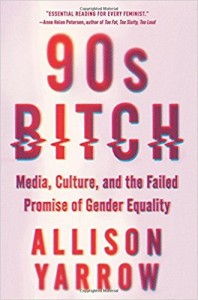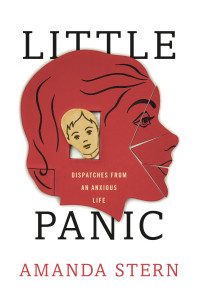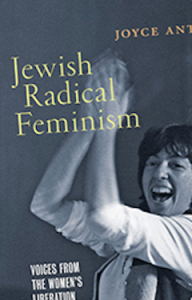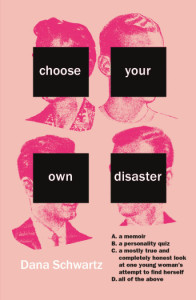The Lilith Blog
June 22, 2018 by Laura Winnick
On “Disobedience:” Threesomes, Friendship and Queer Families
Although Director Sebastian Lilio’s recent film Disobedience is about a forbidden lesbian love between Esti (Rachel McAdams) and Ronit (Rachel Weisz), the most compelling scenes are when the characters are either in solitude, or united as a threesome with Dovit Esti’s husband (Alessandro Nivola),
This oddity might be because Esti and Ronit’s queer coupling is so unrealistic; their sex, for all of the constraints they face in their frum Orthodox community, is lustless: a sequential love-making performed while the two women remain halfway-clothed. Oddly enough, the Forward published a takedown of the film by an Orthodox woman, claiming that she is sick of being fetishized. But this piece notably omits of the word queer, and similarly sidesteps any discussion of what is also fundamentally fetishized in the film: lesbian sex.
- No Comments
June 21, 2018 by JoAnn Abraham
The Cloth Mother and Trauma at the Border
As you read this, more than 11,000 children captured while trying to enter the U.S. across the border with Mexico are warehoused in more than 100 facilities in 17 states. The thousands of children separated from their families in recent weeks are scattered across the country, and there is no coherent plan apparent to reconnect them with their relatives.
I keep thinking about Baby 106.
In the 1950s, American psychologist Dr. Harry Harlow used baby rhesus monkeys for groundbreaking research on childhood attachment. One of his subjects, Baby 106, was taken from its mother at birth and placed in a cage. Eventually it was introduced to two “mothers,” that were actually wire cylinders. One had a protruding nipple connected to a bottle of milk. The other, with no nipple, was covered in cloth. The baby monkey initially went to the wire mother and suckled. Then it went, and stayed, with the cloth mother, the one that offered some tactile comfort.
- No Comments
June 20, 2018 by Jordana Horn
Stop Arguing About Holocaust Analogies and Do Something
 Please, let’s not lightly throw around Holocaust analogies – but perhaps equally important, let’s not argue about whether or not we need to throw around the Holocaust analogies. The Trump Administration’s “zero tolerance” policy which has led to internment camps for children is truly horrifying. On this point, thankfully, many, many people seem to be in agreement.
Please, let’s not lightly throw around Holocaust analogies – but perhaps equally important, let’s not argue about whether or not we need to throw around the Holocaust analogies. The Trump Administration’s “zero tolerance” policy which has led to internment camps for children is truly horrifying. On this point, thankfully, many, many people seem to be in agreement.
But are they “concentration camps” “just like the Nazis had for the Jews”?
- No Comments
June 20, 2018 by Amie Newman
At the Border, We’re Seeing Exactly What America Is
It’s impossible not to see the pleas plastered on Twitter, Facebook, and Instagram: “We are better than this.” “This is not who America is.” “This is not the America I know!”
But it is who we are: what the United States is doing to families and children, specifically families and children of color, by ripping them apart at the U.S. border is part and parcel of an ongoing history. It is horrific and unbearable and inhumane. But it is exactly what America is and continues to be.
We do not like when these injustices become so evident. We prefer our cruelty to remain in the shadows. You know, like lack of access to safe and legal abortion. Or barring women, especially low-wage workers, from paid family leave, or perpetuating a medical system that continues to allow Black women to die during pregnancy and childbirth at three times the rate of White women. So, yes, this new policy is an emergency, but the oppression is definitely not new. (more…)
- No Comments
June 20, 2018 by Sarah M. Seltzer
The Bitches of the 1990s Weren’t Villains After All
 “Jews are really good at knowing our history,” says Allison Yarrow, author of the new book 90s Bitch, which casts a critical eye on the gender politics of the Clinton years, from Monica Lewinsky to Marcia Clark, examining how the rise of the 24/7 media landscape turned them into villains, pushing sexism and silencing into the air we breathe today.
“Jews are really good at knowing our history,” says Allison Yarrow, author of the new book 90s Bitch, which casts a critical eye on the gender politics of the Clinton years, from Monica Lewinsky to Marcia Clark, examining how the rise of the 24/7 media landscape turned them into villains, pushing sexism and silencing into the air we breathe today.
“We need to know the real history of what happened in the 1990,” Yarrow told Lilith, during a chat that covered Bill Clinton’s non-apology, the limits of nostalgia, the Sex and the City anniversary and of course, the word “bitch.”
- No Comments
June 19, 2018 by Yona Zeldis McDonough
Dispatches From an Anxious Life
 The world never made any sense to Amanda Stern–how could she trust time to keep flowing, the sun to rise, gravity to hold her feet to the ground, or even her own body to work the way it was supposed to?
The world never made any sense to Amanda Stern–how could she trust time to keep flowing, the sun to rise, gravity to hold her feet to the ground, or even her own body to work the way it was supposed to?
In her memoir Little Panic: Dispatches from an Anxious Life, Amanda describes this feeling. Deep down, she knows that there’s something horribly wrong with her, some defect that her siblings and friends don’t have to cope with.
Growing up in the 1970s and 80s in New York, Amanda experiences the magic and madness of life through the filter of unrelenting panic. Plagued with fear that her friends and family will be taken from her if she’s not watching—that her mother will die, or forget she has children and just move away—Amanda treats every parting as her last. Shuttled between a barefoot bohemian life with her mother in Greenwich Village, and a sanitized, stricter world of affluence uptown with her father, Amanda has little she can depend on. And when Etan Patz, the six-year-old boy down the block from their MacDougal Street home disappears on the first day he walks to school alone, she can’t help but believe that all her worst fears are about to come true.
- No Comments
June 19, 2018 by Kira Yates
Who Is A Radical Feminist?
The radical feminists were giggling at the images of their younger selves on screen: holding signs that demanded equality and pay, the youthful leaders projected at the front of the auditorium exuded power and hope.
Decades later, these same women were onstage and in the audience, celebrating the release of Joyce Antler’s book, Jewish Radical Feminism: Voices From the Women’s Liberation Movement. The book itself, referred to by Antler as “an excavation” of Jewish women’s history, reads as much as a vital encyclopedia as it does a narrative history. It tells the stories of the dozens of Jewish women whose “participation in [the women’s liberation] movement has been hidden for several decades.”
In the front row, the Jewish women who ushered the women’s liberation movement into the future—Blu Greenberg, Judith Plaskow, Letty Cottin Pogrebin and others—sat in the audience and made comments on their past glories. From behind them, the feeling of friendship was palpable: these women, in the business of pursuing freedom for decades, and found solace and camaraderie with each other. They asked about grandchildren and reminisced about the protest lines.
- No Comments
June 15, 2018 by Alexis Tomarken
Suicide Survivorship: The Risks of Silence and Shame
 This week, one cherub-faced, auburn-eyed child of seven asks me, “Why doesn’t anyone talk to me about my dad?” Precocious and pained, this little girl became a suicide survivor last year when her father ended his life.
This week, one cherub-faced, auburn-eyed child of seven asks me, “Why doesn’t anyone talk to me about my dad?” Precocious and pained, this little girl became a suicide survivor last year when her father ended his life.
She is just beginning to unravel the details of what happened to him. At the same time, she has had to absorb the collateral damage from the loss of family and friends that often accompanies news of a suicide. She is discovering too young that people turn away from suicide and suicide survivors. As a grief specialist, I know vividly this story of social isolation ––and the little girl’s longing to be heard and held.
- No Comments
June 14, 2018 by Sarah M. Seltzer
Dana Schwartz on Humor, Rejecting the “Guilty Pleasure” Label and Terrible Jews
 Dana Schwartz has a knack for getting the internet’s attention. Whether it’s impersonating the pretentiousness of the aspiring male literati for her wildly popular “Guy in Your MFA” fictional Twitter account or taking on Jared Kushner for enabling anti-Semitism—while he was her boss at the New York Observer—Schwartz knows how to harness the zeitgeist by being herself.
Dana Schwartz has a knack for getting the internet’s attention. Whether it’s impersonating the pretentiousness of the aspiring male literati for her wildly popular “Guy in Your MFA” fictional Twitter account or taking on Jared Kushner for enabling anti-Semitism—while he was her boss at the New York Observer—Schwartz knows how to harness the zeitgeist by being herself.
Next week, she’ll release her memoir disguised as a personality quiz, “Choose Your Own Disaster.” At the seasoned age of 25, Schwartz plumbs the depths and heights of her college and post-college life to bring us poignant hilarity about travel, angst and eating disorders–as well as finding romance and the elusive adult self. She spoke to Lilith recently about stereotypes around women’s writing, where her sense of humor comes from, and the worst Jews in public life.
- No Comments
June 13, 2018 by Mikhal Weiner
What a Third Grader Taught Me About the Creative Life
“Do you want to know how I describe my writing to my dad? It made him laugh.”
My student grins mischievously, like she’s about to let me in on some big secret. She may only be in the third grade, but she’s always been insightful and very sharp. “Of course I do,” I smile back. This is going to be good. “OK. So I told him, sometimes you go to the market looking for juicy blood oranges.” she draws out the words juicy and blood for emphasis. “But all you find are just rotten bananas.” I raise my eyebrows quizzically. “See, the market is my brain. And the oranges are good ideas, juicy. But some days all I get are stinking rotten bananas.” At this, she dissolves into giggles and looks pleased. She should be.

At just eight years old, she already understands the most challenging part of creative living. And she can make a damn good metaphor out of it.
- No Comments
 Please wait...
Please wait...